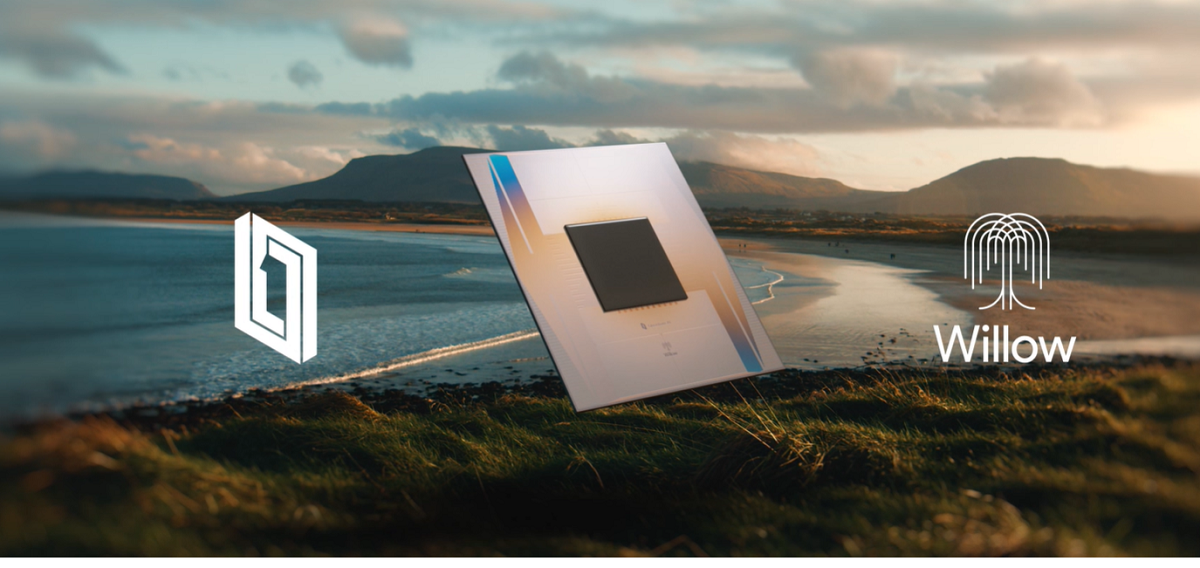Business News
What is Willow? Google's quantum computing chip outpacing supercomputers
.png)
3 min read | Updated on December 10, 2024, 14:44 IST
SUMMARY
Google unveiled its groundbreaking quantum computing chip, Willow, capable of performing a benchmark computation in under five minutes that would take current supercomputers over 10 septillion years.

Google’s Willow quantum computing chip, a leap forward in computational power and error correction.
Google on Monday unveiled its state-of-the-art quantum computing chip, Willow, in a big leap forward in the field of quantum computing. The tech giant claimed that the new chip takes just five minutes to perform a standard benchmark computation that would take one of today’s fastest supercomputers 10000000000000000000000000 years.
Hartmut Neven, founder and lead of Google Quantum AI, described Willow as a transformative step toward realising practical, large-scale quantum computers.
"Willow can reduce errors exponentially as we scale up using more qubits. This cracks a key challenge in quantum error correction that the field has pursued for almost 30 years," Neven said.
"Second, Willow performed a standard benchmark computation in under five minutes that would take one of today’s fastest supercomputers 10 septillion (that is, 1025) years — a number that vastly exceeds the age of the Universe," he added.
Quantum computers are a new type of computer that use the principles of quantum mechanics. Unlike regular computers, which use "bits" (1s and 0s) to store and process information, quantum computers use "qubits," which can be in multiple states (1 and 0) at the same time. This makes them incredibly powerful for solving certain kinds of problems.
One big challenge with quantum computers is that they make a lot of errors as you try to add more "qubits".
“Typically the more qubits you use, the more errors will occur, and the system becomes classical,” Neven explained.
Willow can fix errors much better than earlier chips. In fact, the more qubits they added to Willow, the fewer errors occurred. That’s a big deal because, until now, making quantum computers bigger often made them worse at their job.
Researchers scaled from a 3x3 qubit grid to a 7x7 grid, halving the error rate with each increment.
"In other words, we achieved an exponential reduction in the error rate," Neven said.
“As the first system below threshold, this is the most convincing prototype for a scalable logical qubit built to date,” the Google executive added.
Think of quantum computers as tools to tackle problems that regular computers can’t handle, like simulating new materials, optimising complex systems, or cracking super-secure codes. But for this to work, quantum computers need to be fast and reliable. Willow shows that these machines are getting closer to that goal by solving problems faster while making fewer mistakes.
"Willow brings us closer to running practical, commercially-relevant algorithms that can’t be replicated on conventional computers," Neven said.
Willow proves that quantum computers can handle increasingly complex tasks and could one day tackle real-world problems that are impossible for today’s computers. For example, discovering new drugs, optimising supply chains or financial portfolios, and advancing artificial intelligence.
With Willow, Google aims to bridge the gap between theoretical breakthroughs and practical utility.
"The next challenge for the field is to demonstrate a first "useful, beyond-classical" computation on today's quantum chips that is relevant to a real-world application. We’re optimistic that the Willow generation of chips can help us achieve this goal," Neven said.
By signing up you agree to Upstox’s Terms & Conditions
About The Author
Next Story

